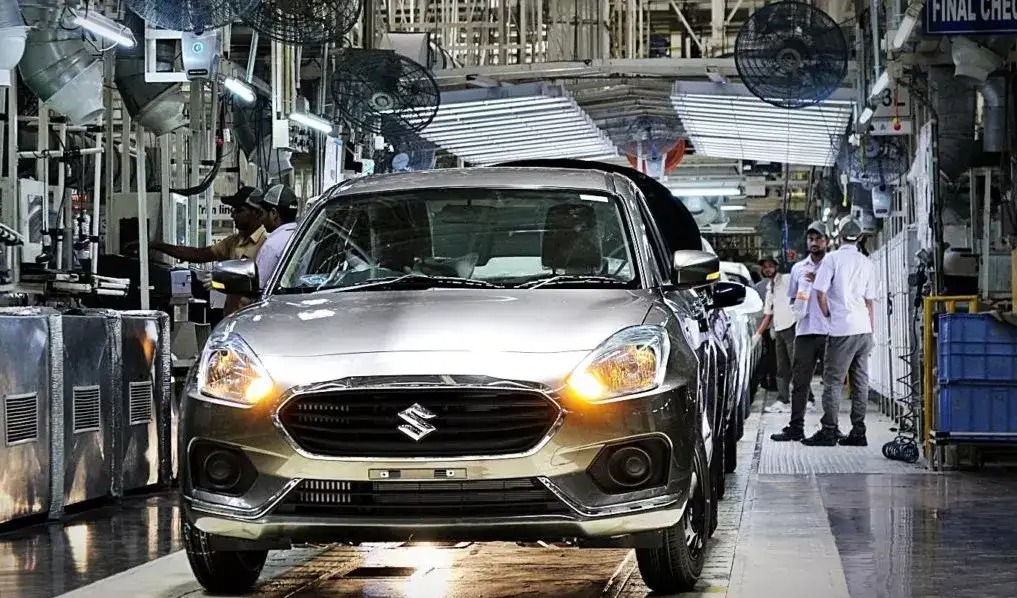Maruti Suzuki, India's leading auto manufacturer, is going through a significant overhaul to make its manufacturing facilities more flexible, hoping to make quick adjustments to changing market patterns and increasing demand for electric and hybrid cars.
Flexible Production Lines for a Dynamic Market
Maruti Suzuki management recently announced that the company is redesigning its production lines to be able to produce a larger variety of models, including hybrids and electric vehicles (EVs). This step is aimed at meeting divergent patterns of demand, with the demand for utility vehicles seeing a significant rise while the entry-level car segment saw a decline. The firm's Executive Officer for Corporate Affairs, Rahul Bharti, said that a lack of flexibility in the past resulted in overproduction of slow-moving models affecting margins. By increasing the flexibility of their plants, Maruti hopes to more closely match output with real-time market demand and eliminate such inefficiencies.
Preparing for the Electric and Hybrid Future
Maruti is also fitting out new manufacturing lines, including those at its Gujarat and Kharkhoda plants, to meet the specific needs of EVs, which are heavier as they contain battery packs and need greater body strength. This strategic move helps Maruti pursue decarbonisation goals and is in line with future regulatory adjustments, such as the expected tightening of CAFE-III emission norms. The company is presently aggressively working with policymakers to prepare itself for these standards, which will be coming within the next couple of months.
Investments and Expansion
The flexibility drive accompanies large investments in new capacity. Maruti is constructing a third plant at Kharkhoda in Haryana in an investment of ₹7,410 crore to increase its capacity at the location to 750,000 units by 2029. The facility's first phase started production in early 2025, and additional expansions are scheduled to accommodate both domestic and export demand.
Export Focus and Industry Context
While domestic sales have plateaued, Maruti is leveraging exports and hybrid models to offset sluggishness in the entry-level segment. The company remains India’s largest car exporter and is targeting new markets across Africa, Latin America, Southeast Asia, and the Middle East. Japanese automakers, including Maruti’s parent Suzuki, are advocating for hybrids as a pragmatic step toward decarbonisation, even as Indian rivals focus more aggressively on full electrification.
Industry Challenges and Outlook
Maruti recognises that achieving higher production flexibility comes with some incremental costs and operational sophistication. Yet, management is convinced that the changes will enable the firm to react more quickly to market changes and regulatory requirements so as to become competitively long-term in an ever-changing automobile environment.
Sources: India Today, Business Today, Hindustan Times Auto, Economic Times Auto
